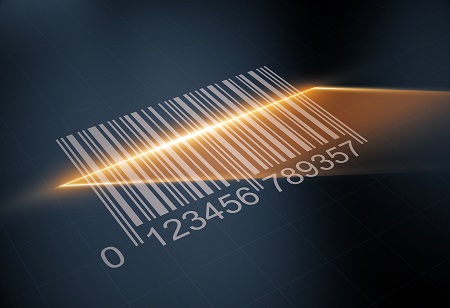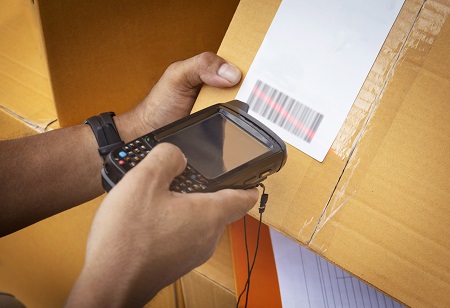6 Reasons Product Barcodes Are Important
By Consultantsreview Team
 An instantly recognisable staple of the business world, product barcodes are critical in allowing companies to effectively manage stock inventory, streamline their customer check-out experience, and track shipments between destinations.
An instantly recognisable staple of the business world, product barcodes are critical in allowing companies to effectively manage stock inventory, streamline their customer check-out experience, and track shipments between destinations.
Popularised by supermarkets (who were early adopters in the early 1970s), barcodes are now commonly used in every major industry, but have you ever wondered why they're so important?
-
Simplicity
Barcode systems, once implemented, are generally very simple to operate, meaning there are minimal training requirements for new staff.
As technology continues to permeate traditional retail environments, customers expect a seamless check out experience,
By reducing the amount of training required for new staff members, a company can effectively reduce its overhead costs and focus on its day-to-day operations.
-
Inventory Management
One of the most critical functions of barcodes is allowing businesses to access accurate stock data in real-time.
Barcodes are an integral part of accurate inventory ordering, along with stock-keeping unit (SKU) numbers (you can read more about SKU numbers here). Data from barcode scans can show a business which of their products are selling fast, so more can be ordered, and which items aren't as popular as expected, meaning future orders should be reduced to avoid wastage.
Product barcodes also let a store employee see if an 'out of stock' item a customer has requested is available at any other locations in their network to maximise sales and prevent a business from missing a sale opportunity.
-
Accurate Repricing
Sometimes stores have sales and discounts and need to update their pricing.
Without barcodes, this would need to be done manually, which is an extremely time-consuming exercise and could cause problems if pricing information was written illegibly.
As barcodes and their data are digital, a company can change the price of their stock for any reason, remotely. Business owners can rest easy in the knowledge that the change will take place immediately and accurately for all affected stock.
Accurate repricing ensures customers are not incorrectly charged, and businesses don't lose money due to any inaccurate or incomplete manual repricing.
-
Portable Convenience
Product barcode technology has never been more convenient or portable.
In bigger warehouses, order pickers can use a lightweight, handheld barcode scanner or app to accurately capture data for what they're moving and packing.
There is an abundance of barcode scanner apps available in all major app stores, and portable, cost-efficient handheld barcode scanners are becoming increasingly popular with the rise of flexible working.
To demonstrate the popularity of portable barcode scanning technology, the company 'Durasled,' which manufactures portable barcode scanners compatible with Apple products, recently enjoyed a stock price increase of 980% after announcing their Durasled product was now compatible with iPhone 12. Clearly, companies' value portable barcode solutions.
-
Asset Security Tracking
In addition to providing accurate data on inventory levels, barcodes are critical in tracking other assets, as well as providing an element of theft deterrent by making it obvious an asset is being tracked.
By using a barcode asset management system, you can physically affix a barcode sticker to an asset, letting people know it's a company asset.
By scanning the barcode (or a copy of it), system administrators can remotely retrieve asset profiles and edit information stored within via an asset tracking app.
 Scanning the barcode also allows you to see where your asset has been. When used in conjunction with a GPS asset management system, scanning a barcode shows you GPS data from your assets last reported location, so you can track its movements or assist police in retrieving a stolen item.
Scanning the barcode also allows you to see where your asset has been. When used in conjunction with a GPS asset management system, scanning a barcode shows you GPS data from your assets last reported location, so you can track its movements or assist police in retrieving a stolen item. Tracking your assets in this way allows a business to diagnose any asset issues that may arise and streamline their operations by identifying preventable asset downtime or resources not performing at optimal levels, potentially improving your company's bottom line.
-
Shipment Tracking
The online shopping boom has forced retailers to create new ways to keep their customers happy while waiting for their products, as consumers expect more up-to-date information on their purchases in an instant gratification society.
Barcode technology has created a straightforward and simple way for different postal services to collaborate and provide accurate shipment tracking for consumers. Only a few years ago, you might only know when a parcel was shipped and when it was received, but with cutting-edge barcode technology now available, customers can check the exact location of their package in seconds and even get SMS notifications to keep them up to date proactively.
Takeaway
Product barcodes are a simple, cost-efficient solution for retail and stock management and have become the gold standard for inventory and asset management systems.
An efficient product barcode system, when utilised correctly, is critical in helping your business provide a seamless customer experience.







